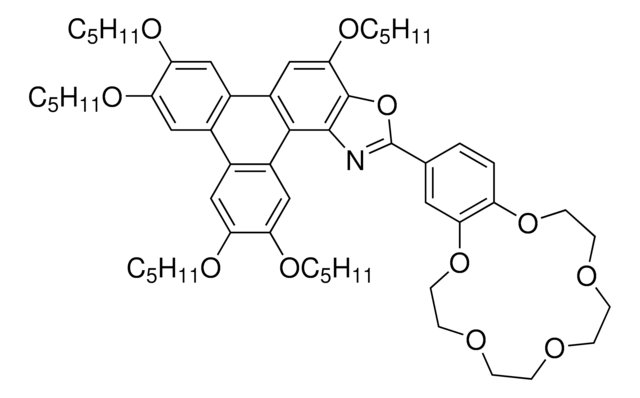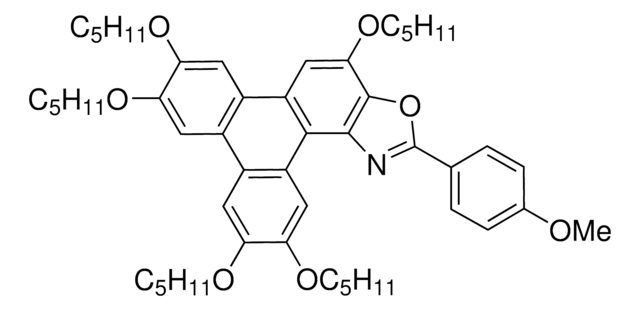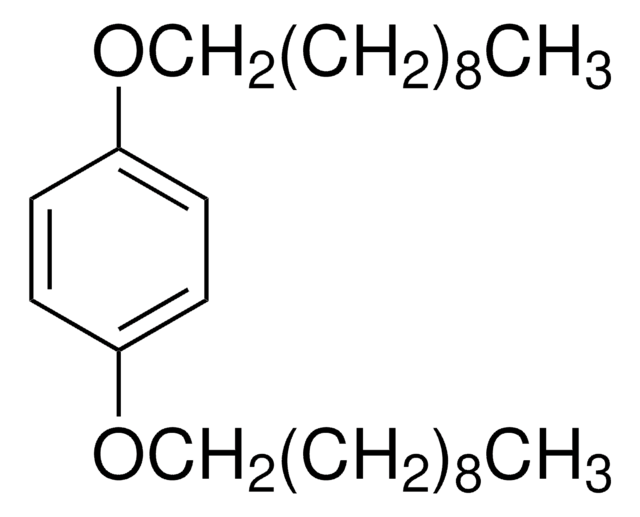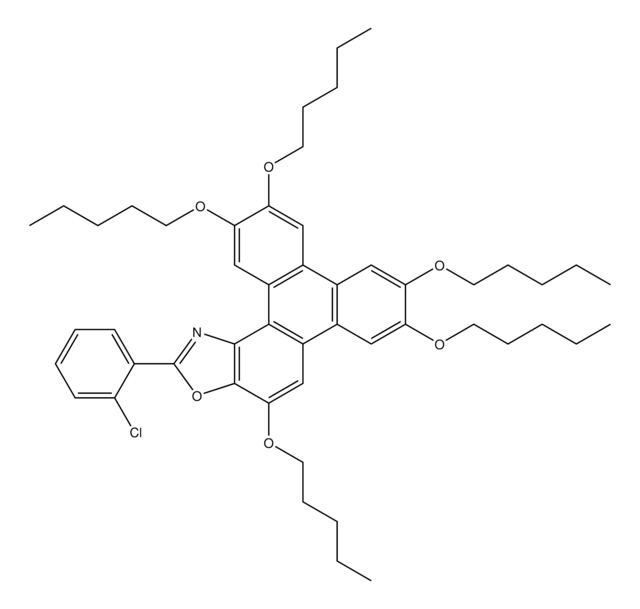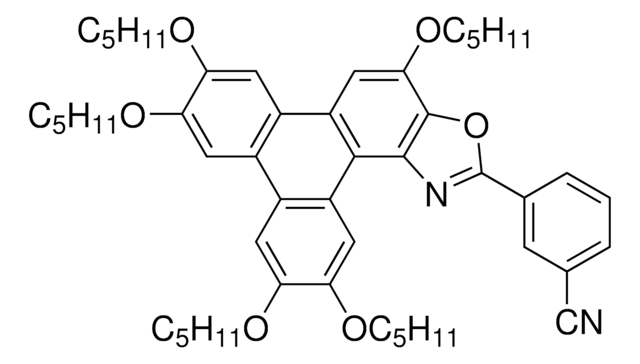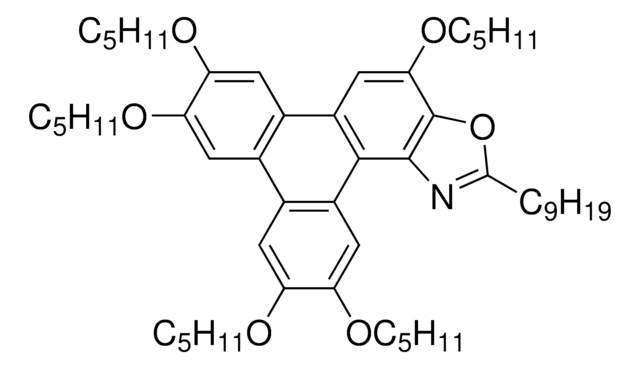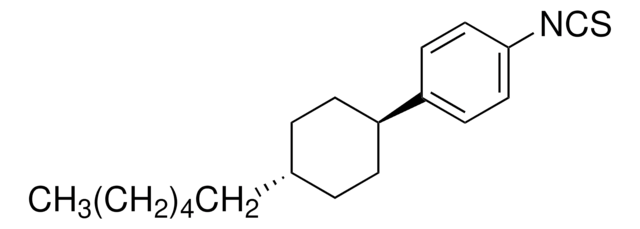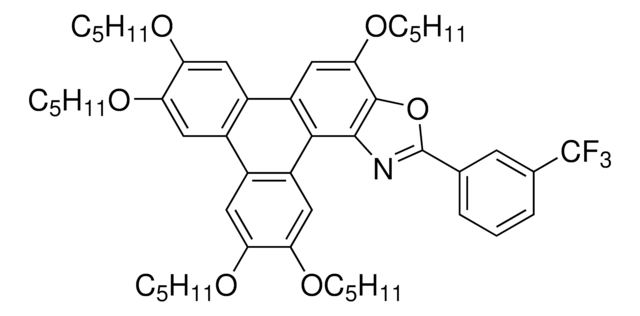922927
TpOx-Ph
Sinonimo/i:
2,3,6,11,12-Pentakis(pentyloxy)-8-phenyltriphenyleno[1,2-d]oxazole
Autenticatiper visualizzare i prezzi riservati alla tua organizzazione & contrattuali
About This Item
Formula empirica (notazione di Hill):
C50H65NO6
Numero CAS:
Peso molecolare:
776.05
NACRES:
NA.23
Prodotti consigliati
Temperatura di conservazione
−20°C
Livello qualitativo
Categorie correlate
Descrizione generale
TpOx-Ph is a UV excitable fluorescent material with a polycyclic aromatic donor-acceptor structure where the triphenoxazole core acts as a donor and the aromatic group on the two position of the oxazole (phenyl) act as the acceptor group. The push-pull, donor-acceptor, structure facilitates intramolecular charge transfer in the excited state that results in a 197 nm emission Stokes Shift. This oxazole is also a photo-conducting Discotic Liquid Crystalline (DLC) material with mesophase transition onset temperature of 111 °C. It is designed for 355 nm and 405 nm excitation with emission at 467 nm with quantum yield of 0.49, high thermal, chemical and photostability. This luminescent compound has potential uses in fluorescent dye staining, organic electronic and photonics, and imaging applications.
Applicazioni
Fluorescent materials have a range of unique properties that allows for potential use in a range of applications:
- Fluorescent dye staining
- Organic semiconductor for organic electronic and photonic applications
- Multi-photon microscopy
Stoccaggio e stabilità
Store under nitrogen in the dark in the freezer (below 8 Celsius).
Codice della classe di stoccaggio
11 - Combustible Solids
Classe di pericolosità dell'acqua (WGK)
WGK 3
Punto d’infiammabilità (°F)
Not applicable
Punto d’infiammabilità (°C)
Not applicable
Scegli una delle versioni più recenti:
Certificati d'analisi (COA)
Lot/Batch Number
Ci dispiace, ma al momento non ci sono COA disponibili online per questo prodotto.
Se ti serve aiuto, non esitare a contattarci Servizio Clienti
Possiedi già questo prodotto?
I documenti relativi ai prodotti acquistati recentemente sono disponibili nell’Archivio dei documenti.
Il team dei nostri ricercatori vanta grande esperienza in tutte le aree della ricerca quali Life Science, scienza dei materiali, sintesi chimica, cromatografia, discipline analitiche, ecc..
Contatta l'Assistenza Tecnica.